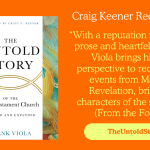In the Western heroic tradition, the paragon of the humane warrior is Homer’s Hector, prince of the Trojans. He is a fierce fighter: On one particular day, no Greek can stand up to him; his valor puts the whole Greek army to rout. Even on an unexceptional day, Hector can stand up to Ajax, the Greek giant, and trade blow for blow with him. Yet as fierce as Hector can be, he is also humane. He is a loving son to his aged parents, a husband who talks on equal terms with his wife, Andromache, and a tender-hearted father. He and King Priam are the only ones in Troy who treat Helen, the ostensible cause of the war, with kindness.
One of the most memorable scenes in The Iliad comes when Hector, fresh from the battlefield, strides toward his boy, Astyanax. The child screams with fright at the ferocious form encased in armor, covered with dust and gore. Hector understands his child in an instant and takes off his helmet, with its giant horsehair plume, then bends over, picks his boy up and dandles him, while Andromache looks on happily. Astyanax—who will soon be pitched off the battlements of Troy when the Greeks conquer the city—looks up at his father and laughs in delight.
The scene concentrates what is most appealing about Hector—and about a certain kind of athlete and warrior. Hector can turn it off. He can stop being the manslayer that he needs to be out on the windy plains of Troy and become a humane husband and father. The scene shows him in his dual nature—warrior and man of thought and feeling. In a sense, he is the figure that every fighter and athlete should emulate. He is the Navy Seal or Green Beret who would never kill a prisoner, the fearless fighter who could never harm a woman or a child. In the symbolic world of sports, where the horrors and the triumphs of combat are only mimicked, he is the one who comports himself with extreme gentleness off the field, who never speaks ill of an opponent, who never complains, never whines.
But The Iliad is not primarily about Hector. It is the poem of Achilles and his wrath. After Hector kills Achilles’ dear friend Patroclus, Achilles goes on a rampage, killing every Trojan he can. All humanity leaves him; all mercy is gone. At one point, a Trojan fighter grasps his knees and begs for mercy. Achilles taunts him: Look at me, he says, so strong and beautiful, and some day I, too, shall have to die. But not today. Today is your day. At another point, a river close to the city, the River Scamander, becomes incensed over Achilles’ murderous spree. The hero has glutted its waters with blood and its bed with bodies. The river is so enraged that it tries to drown the hero. When Achilles finally gets to Hector, he slaughters him before the eyes of his parents, Hecuba and Priam, and drags his body across the plains of Troy.
Achilles is drunk on rage, the poem tells us. His rational mind has left him, and he is mad with the joy of slaughter. The ability to modulate character that Hector shows—the fierce warrior becoming the loving father—is something Achilles does not possess. Achilles, one feels, could not stop himself if he wished to: A fellow Greek who somehow insulted him when he was on his rampage would be in nearly as much danger as a Trojan enemy. Plato would recognize Achilles as a man who has lost all reason and has allowed thymos to dominate his soul.
This ability to go mad—to become berserk—is inseparable from Achilles’ greatness as a warrior. It is part of what sets him above the more circumspect Hector on the battlefield. When Hector encounters Achilles for the last time, Hector feels fear. Achilles in his wrath has no idea what fear is, and that is part of what makes him unstoppable.
Achilles’ fate is too often the fate of warriors and, in a lower key, of athletes. They unleash power in themselves, which they cannot discipline. They leave the field of combat or of play and are still ferocious, or they can be stirred to ferocity by almost nothing. They let no insult pass. A misplaced word sends them into a rage. A mild frustration turns them violent. Thymos, as Plato would have said, has taken over their souls, and reason no longer has a primary place—in some cases, it has no place at all.
via Do Sports Build Character or Damage It? – The Chronicle Review – The Chronicle of Higher Education.
This comparison, I think, can apply to modern warriors in the military, and to athletes, and to “warriors” in the business world and other professions. It’s possible for a lawyer, a scholar, a salesman, or maybe even a pastor (you think?) to go so all out that normal human feelings are extinguished in favor of winning at all costs, exerting power over other people, and achieving glory. They can never “shut it off.” Even when this means harming their families and ultimately themselves. (Achilles himself being brought down by the weakling Paris whose arrow hits him at his one point of vulnerability.)
This has to do, of course, with vocation, when the vocation is twisted into a means of aggrandizement for the self rather than love and service to the neighbor.













